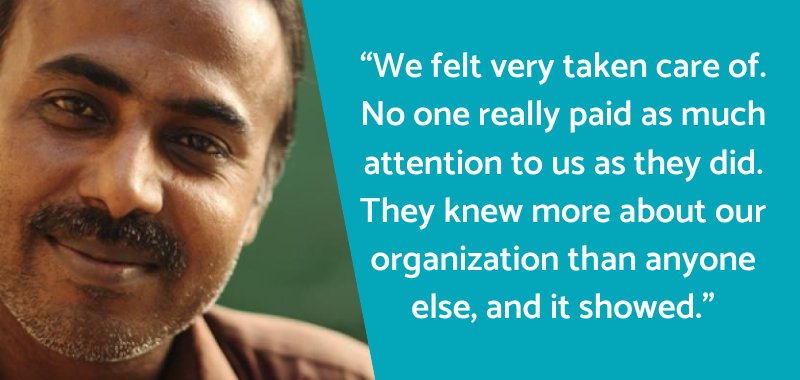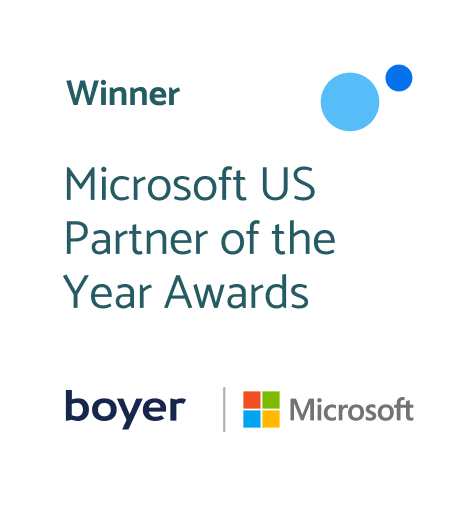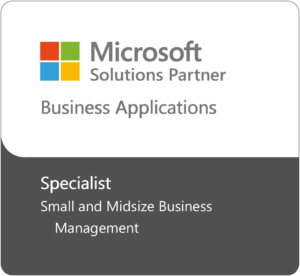
Enhanced Productivity with AI Assistance

Leading the Way in Digital Transformation

With thousands of immigrants coming to the U.S. each year, providing each individual with the specific services needed to navigate the confusing legal system is no small task. That’s why Catholic Legal Immigration Network, Inc. (CLINIC) exists.
With immigrants often waiting years for their cases to be heard, CLINIC works tirelessly to equip more legal advocates with the training and resources to help. The Maryland-based organization has 100 staff members working throughout the country to support 3,000 advocates nationwide. Together they serve more than 500,000 immigrants and refugees each year.
CLINIC provides training, grants, an “ask the experts” hotline and so much more for both lawyers and non-lawyer immigration advocates.
Disparate data causes headaches
With a network of more than 450 Affiliates, simply keeping track of everyone’s data was a challenge in itself. CLINIC relied on surveys to update staff rosters at each Affiliate, but the response rate was well below 50 percent, so data was often incomplete or outdated.
CLINIC provides numerous services for their Affiliates, but training is by far the most widely used. Finding a specific training or expert resource, however, proved difficult due to CLINIC’s disparate systems that required multiple logins.
And with everyone doing things their own way in multiple systems, even recognizing a specific site or service as being part of CLINIC was becoming increasingly difficult.
“It was difficult to standardize experiences. Everyone kind of had a different way of doing it,” IT Manager Christian Lund said. “One of the key goals that this project is solving for is to unify and make equitable the experience of using CLINIC services.”
Initial push to the cloud sets the stage
For 30 years, CLINIC operated on opensource software. When COVID-19 hit, they invested heavily in Microsoft’s cloud infrastructure. That’s when Lund joined the team.
“They had just invested in this large cloud infrastructure, and they didn’t really know how to use it,” Lund said. “Everyone was kind of learning how to work in a new way.”
While the initial push to the cloud was a good first step, Lund knew more needed to be done. Tasked with deprecating the organization’s other systems, he recommended a continued investment in the Microsoft ecosystem.
Lund suggested CLINIC switch to a Microsoft-based “single source of truth” that included ERP and CRM solutions.
“Everything that we’re building here is designed to amplify and enhance our ability to serve our network. We want to create apps at scale to serve our Affiliates.”
– Christian Lund, IT Manager, CLINIC
An easy choice in Microsoft’s Nonprofit Accelerator
CLINIC looked briefly at other popular nonprofit CRM and ERP systems, but ultimately decided to continue their investment in the Microsoft ecosystem.
“For us the integration with our Microsoft platform was the key piece,” Lund said. At the time, the staff was basically using Microsoft Outlook as an ad-hoc CRM and customer service system.
Because they were already so invested in Microsoft, taking it one step further was an easy decision. A look at Microsoft’s comprehensive Dynamics 365 Nonprofit Accelerator further cemented the decision.
“We appreciate the thought, the coordination and the investment that Microsoft is making,” Lund said.
He added that CLINIC wanted to mature their internal processes and systems. Looking at Microsoft’s model for how nonprofits operate helped the organization’s leadership think through what changes they wanted to make to future-proof their processes and systems.
“It’s this really beautiful reciprocal relationship. As our leadership is trying to figure out how to be more deliberate in the way that they think about the theory of change, it’s been really helpful to look at the Microsoft model,” Lund said. “We just needed the structure. We needed something to work within.”

A Microsoft partner with nonprofit expertise
Choosing Microsoft was an easy decision. Likewise, so was choosing Boyer. Lund said Boyer stood out among Microsoft partners as having the most experience with nonprofits, not to mention being named the 2023 Microsoft US Partner of the Year for Social Impact, Inclusion Changemaker.
They were also the most dedicated. Even in initial conversations, Boyer took the time to answer all of Lund’s questions, spending hours each week digging into the nonprofit’s CRM and ERP requirements to come up with a complete solution.
“We felt very taken care of,” Lund said. “No one really paid as much attention to us as they did. … They knew more about our organization than anyone else, and it showed.”
Boyer put together a solution blueprint for Lund to present to the board, complete with an estimate for each phase of the project. Boyer also had the expertise to complete both the ERP and CRM portions of CLINIC’s planned implementation.
“The one-two of Boyer with Microsoft has been absolutely essential in helping us succeed with this mission,” Lund said.
Starting with ERP improves financial reporting
In addition to a single source of truth in their CRM, CLINIC also needed a better way to track their financial data, including grants. Reporting needed an upgrade as the organization became more complex.
The nonprofit started their engagement with Boyer by implementing FUNDamentals, a true fund accounting solution built on top of Dynamics 365 Business Central.
“That is a gamer changer. It’s been very popular, and it’s just going to get better,” Lund said.
Already the finance team is seeing a huge improvement in their ability to aggregate data and slice and dice reports to gain better insights into the health of the organization.

Ultimate goal: ‘One source of truth’
The overhaul of CLINIC’s entire IT infrastructure is far from complete, but the pieces that have finished are creating an excellent foundation.
As of May 2024, CLINIC is about halfway through their entire engagement. They have already implemented Microsoft Dynamics 365 Business Central with the Fundamentals add-on and are currently in the midst of their Dynamics 365 CRM implementation. They’re live with Event Management, Fundraising & Engagement, Customer Service and a portal for event registration. Still to come are modules for grant management, donor management and additional functionality and integrations.
“We’ve laid the foundation and we’re ready to build upon it,” Lund said.
An Affiliate portal is in the works that will make it easier for affiliates to communicate and track data. Affiliates will soon be able to update their profiles, sign up for training, view certifications, request help, and network. Plus, any related financial data on programs already flows back to their ERP system in real time.
“People will see the data that they rely on regularly coming into this single source,” Lund said. “Finance sees it (already) because they went first. Advancement is learning. … Right now, that’s the biggest thing for us as the greatest benefit.”
So far, the changes have been well received. In fact, one director joked that he now wants to get a tattoo that reads “single source of truth.”
“We’ve just seen those lightbulbs go off at every step … The more people we bring into it, the more it makes sense to us,” Lund said.
A major side benefit of moving to that single source of truth is that CLINIC is cleaning up their existing data, one system at a time.
Paving the way for better Affiliate support
While the current focus is on improving systems at CLINIC headquarters, Lund said the ultimate goal is to better serve their Affiliates.
“Everything that we’re building here is designed to amplify and enhance our ability to serve our network,” Lund said. “We want to create apps at scale to serve our Affiliates.”
To that end CLINIC invited Boyer and Microsoft to speak at their upcoming CLINIC Convening 2024 conference. This gives Affiliates an opportunity to make suggestions on additional IT improvements that would benefit the entire network.
“If there’s a function, they need from us we want to be able to build an app to do that,” he said. Using Microsoft’s low-code toolset will hopefully help CLINIC and its Affiliates do more than any one of them could do on their own. They’ve already received requests to build a better tracking system of who is accredited, among other suggestions.
“Our goal is to amplify our network and increase the legal capacity to support immigrants and asylum seekers, and we see this tech product as an absolute integral part of that,” Lund said.
If you’re attending CLINIC Convening, be sure to join one of the Wednesday IT sessions with Boyer and Microsoft to offer your input and suggestions.





